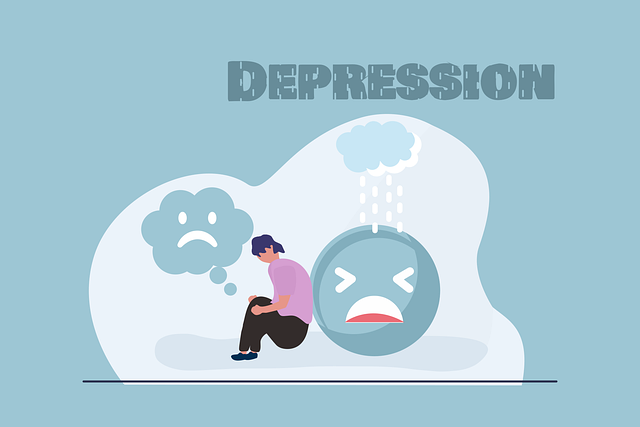In the specialized field of Englewood Polyamorous and Open Relationships Therapy, mental health professionals face complex risks. They must balance recognizing vulnerabilities in alternative relationships with acknowledging their unique benefits. Through practices like Mental Wellness Coaching, Compassion Cultivation, and Stress Management, therapists mitigate these risks, build resilience, and ensure ethical boundaries. This approach allows them to guide clients towards mental wellness while respecting openness and informed consent.
Trends indicate a shift in personal health and wellness, suggesting new strategies are needed. The process involves continuous adaptation to meet evolving needs and challenges, driven by individual circumstances and professional insights. Robust risk management planning is vital, addressing client-specific issues and systemic factors through Trauma Support Services and Mental Health Awareness programs. Regular updates based on best practices, legal requirements, and emerging trends ensure a proactive, resilient therapeutic culture.
In the realm of mental health, effective risk management planning is paramount to ensuring client safety and practitioner well-being. This article explores strategic approaches, offering a unique perspective through the Englewood Polyamorous and Open Relationships Therapy model. We delve into understanding various risks inherent in mental health practice, emphasizing the importance of a comprehensive risk management plan. By examining case studies and best practices, we highlight continuous evaluation and adaptation as essential components for fostering a safe and supportive therapeutic environment.
- Understanding Risk in Mental Health Practice
- The Englewood Polyamorous Approach: A Unique Perspective
- Creating a Comprehensive Risk Management Plan
- Continuous Evaluation and Adaptation for Safe Practice
Understanding Risk in Mental Health Practice

In the nuanced field of mental health practice, understanding risk is paramount for professionals like those offering Englewood Polyamorous and Open Relationships Therapy. Risk isn’t merely about potential harm; it encompasses a complex web of psychological, social, and relational factors that can impact both clients and therapists. Recognizing this involves acknowledging the inherent vulnerability within human connections, especially in alternative relationship structures. Therapists must be attuned to the unique challenges and benefits that polyamorous and open relationships bring, balancing openness with ethical boundaries and informed consent.
This nuanced understanding of risk is further enriched by incorporating practices like Mental Wellness Coaching Programs Development and Compassion Cultivation. By fostering resilient coping mechanisms and cultivating a culture of self-care, mental health professionals can mitigate potential risks associated with complex relationship dynamics. Additionally, Stress Management techniques play a pivotal role in maintaining therapists’ emotional resilience, ensuring they remain effective guides for their clients on the journey towards mental wellness.
The Englewood Polyamorous Approach: A Unique Perspective

The Englewood Polyamorous Approach offers a unique perspective on mental health treatment, particularly for professionals navigating complex relationships. This innovative therapy model challenges traditional norms and embraces open communication and consensual non-monogamy as a means to enhance mental wellness. By integrating principles from polyamorous communities, therapists can create a safe space for clients to explore their emotions and connections freely, fostering genuine self-expression and improved interpersonal dynamics.
This approach is especially relevant in the context of mental health education programs design, where promoting healthy relationship models is crucial. Crisis intervention guidance can benefit from this perspective by encouraging individuals to embrace diverse relationship structures as valid and beneficial, thereby reducing stigma and expanding support options for those seeking help.
Creating a Comprehensive Risk Management Plan

In the dynamic field of mental health therapy, particularly within specialized practices like Englewood Polyamorous and Open Relationships Therapy, robust risk management planning is paramount to ensuring a safe and nurturing environment for both clients and professionals. A comprehensive risk management plan serves as a strategic framework that proactively identifies potential hazards, evaluates their impact, and outlines clear procedures for mitigation and response. This involves not just assessing individual client risks but also considering systemic factors that could influence the overall wellness of the therapeutic community.
By integrating Trauma Support Services and focusing on Mental Health Awareness, this plan must be tailored to address issues such as stress management, crisis intervention, confidentiality breaches, and ethical dilemmas. Effective risk management for mental health professionals requires regular review and updating based on evolving best practices, legal requirements, and emerging trends in the field. Such proactive measures not only safeguard against potential hazards but also foster a culture of resilience and adaptability within the therapeutic setting.
Continuous Evaluation and Adaptation for Safe Practice

Mental health professionals must adopt a mindset of continuous evaluation and adaptation to ensure safe and effective practice. This involves regularly assessing risk factors unique to each client, as well as reflecting on one’s own emotional and mental state. At Englewood Polyamorous and Open Relationships Therapy, we prioritize self-awareness exercises for both therapists and clients, fostering an environment where mental health awareness is cultivated. By staying attuned to emerging challenges and trends, therapists can adapt their strategies and interventions promptly.
This dynamic approach encourages the development of Mental Wellness Coaching Programs, tailored to individual needs. Through ongoing evaluation, professionals can identify potential risks and implement preventative measures, ultimately enhancing client outcomes. As we navigate complex human experiences, self-reflection and adaptability are key to fostering secure connections and supporting mental wellness in diverse relationships, be it monogamous or polyamorous.
Mental health professionals face unique challenges, and effective risk management planning is essential. By adopting an approach like the Englewood Polyamorous and Open Relationships Therapy model, practitioners can foster a safe and supportive environment for clients. This involves creating comprehensive risk management plans that integrate continuous evaluation and adaptation, ensuring practical strategies to mitigate potential harms. Embracing open communication, as encouraged by the Englewood method, allows professionals to navigate complex situations, enhance patient outcomes, and maintain ethical standards in their practice.








